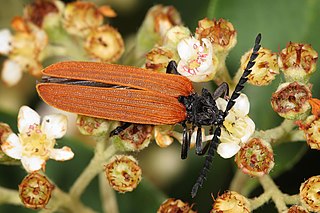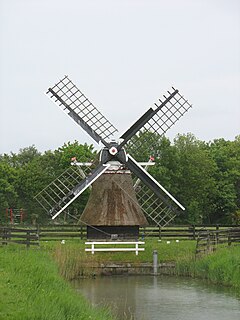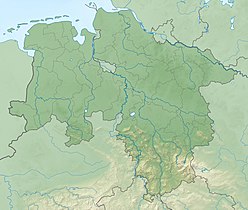This page is based on this
Wikipedia article Text is available under the
CC BY-SA 4.0 license; additional terms may apply.
Images, videos and audio are available under their respective licenses.

The Jungfrau Railway is a 1,000 mm metre gauge rack railway which runs 9 kilometres (5.6 mi) from Kleine Scheidegg to the highest railway station in Europe at Jungfraujoch, between the Bernese Highlands and the Valais in Switzerland. The railway runs almost entirely within the Jungfrau Tunnel, built into the Eiger and Mönch mountains and containing two stations in the middle of the tunnel, where passengers can disembark to observe the neighbouring mountains through windows built into the mountainside. The initial open-air section culminates at Eigergletscher, which makes it the second highest open-air railway in Switzerland. The line is electrified at 3-phase 1,125 volts 50 Hertz, and is one of four lines in the world using three-phase electric power.

The Wengernalp Railway is a 19.11 kilometres (11.87 mi) long rack railway line in Switzerland. It runs from Lauterbrunnen to Grindelwald via Wengen and Kleine Scheidegg, making it the world's longest continuous rack and pinion railway. The name refers to the seasonal mountain pastures above Wengen.

The Kleine Scheidegg is a mountain pass at an elevation of 2,061 m (6,762 ft), situated below and between the Eiger and Lauberhorn peaks in the Bernese Oberland region of Switzerland. The name means "minor watershed", even though it is actually higher than the neighbouring Grosse Scheidegg. Possibly this is because Kleine Scheidegg is a watershed between the two arms of the Lütschine river, while Grosse Scheidegg divides the Lütschine from the Rychenbach stream.

Sten Einar Stensen is a former speed skater. Together with Amund Sjøbrend, Kay Stenshjemmet, and Jan Egil Storholt, he was one of the legendary four S-es, contemporary Norwegian top skaters in the 1970s and early 1980s. Stensen excelled at the longer distances, especially the 5,000 m and 10,000 m, and set two world records. He was World Allround Champion in 1974 and European Allround Champion in 1975. He also won Olympic gold on the 5,000 m in Innsbruck in 1976. For his accomplishments, he received the Oscar Mathisen Award in 1974 and 1976.

Joseph William Kleine is a retired American professional basketball player who played in the NBA.
Kleine–Levin syndrome (KLS), is a rare sleep disorder characterized by persistent episodic hypersomnia and cognitive or mood changes. Many patients also experience hyperphagia, hypersexuality and other symptoms. Patients generally experience recurrent episodes of the condition for more than a decade and may return at a later age. Individual episodes generally last more than a week, sometimes lasting for months. The condition greatly affects the personal, professional, and social lives of sufferers. The severity of symptoms and the course of the syndrome vary between sufferers. Patients commonly have about 20 episodes over about a decade. Several months generally elapse between episodes. The onset of the condition usually follows a viral infection; several different viruses have been observed to trigger KLS. It is generally only diagnosed after similar conditions have been excluded; MRI, CT scans, lumbar puncture, and toxicology tests are used to rule out other possibilities. The syndrome's mechanism is not known, but the thalamus is thought to possibly play a role. SPECT has shown thalamic hypoperfusion of patients during episodes.

Pieter "Piet" Kleine is a former speed skater from the Netherlands who specialized in the longer distances.

Christina ("Stien") Wilhelmina Baas-Kaiser is a former speed skater from the Netherlands.

Carolina ("Carry") Cornelia Catharina Geijssen is a former speed skater from the Netherlands.

The Lycidae are a family in the beetle order Coleoptera, members of which are commonly called net-winged beetles. These beetles are cosmopolitan, being found in Nearctic, Palearctic, Neotropical, Afrotropical, Oriental, and Australian ecoregions.

Streithausen is an Ortsgemeinde – a community belonging to a Verbandsgemeinde – and a state-recognized tourism community (Fremdenverkehrsgemeinde) in the Westerwaldkreis in Rhineland-Palatinate, Germany.
Theodor "Theo" Kleine was a German sprint canoer who competed in the late 1950s. He won a silver medal in the K-2 10000 m at the 1956 Summer Olympics in Melbourne.

The Kleiner Wurzelnberg rises to a height of 610 m above NN in the Harz mountains of Germany, 3.7 km northeast of Sieber in the district of Göttingen in Lower Saxony. It forms a rounded summit (Kuppe) on one of the ridges running south of the Acker which acts as the watershed between the Verlorene Kulmke and the Kleine Kulmke. The Großer Wurzelnberg is located 750 metres further east on the other side of the valley of the Kleine Kulmke.
Große Kulmke is a river of Lower Saxony, Germany.
Kleine Kulmke is river of Lower Saxony, Germany, in the Harz Mountains, a tributary of the Große Kulmke.

George Kleine (1864-1931) was an American film producer and cinema pioneer.

De Kleine Molen is a smock mill in Stiens, Friesland, Netherlands which was built in 1913 and moved in 1988. The mill is the smallest of its type in the Netherlands. In working order, it is listed as a Rijksmonument.
















